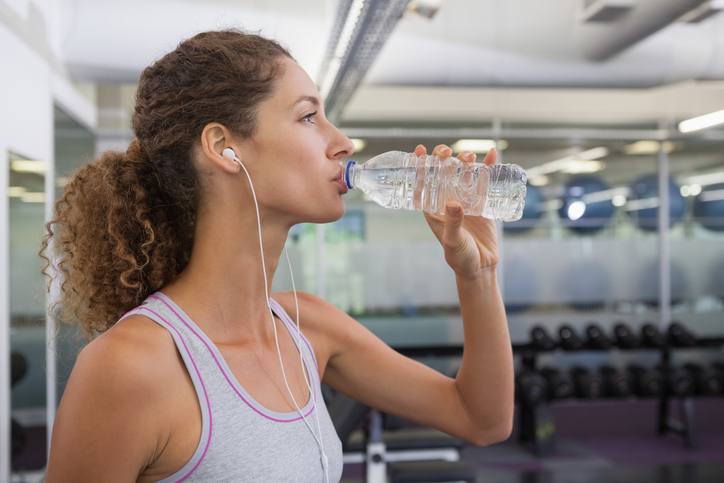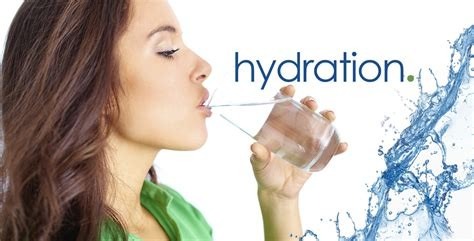The Significance of Staying Hydrated for Your Overall Well-Being.
“`html
Hydration is a crucial component of maintaining good health, yet it is frequently neglected. Our bodies consist of approximately 60% water, and nearly every vital function relies on proper hydration. From regulating body temperature to keeping our joints adequately lubricated, water is fundamental for survival. Despite its significance, many individuals fail to consume enough water daily, which can result in dehydration and adversely affect both physical and mental health. This article will delve into the importance of hydration, the recommended water intake, and tips for maintaining proper hydration to support overall well-being.
Importance of Hydration for Overall Health.
Water plays a vital role in numerous essential functions within the body. Staying hydrated helps ensure that these processes operate efficiently and supports overall health.
Regulates body temperature effectively.
Water assists in regulating body temperature through sweating and respiration. When dehydrated, your body struggles to cool itself, leading to overheating or heat exhaustion, especially during hot weather or physical exertion.
Aids digestion and nutrient absorption.
Water is crucial for digestion. It breaks down food in the stomach and enables nutrient absorption in the intestines. Insufficient water intake can hinder digestion, resulting in constipation and discomfort.
Lubricates joints and cushions surrounding tissues.
Proper hydration maintains joint lubrication and protects body tissues, including the brain, spinal cord, and other vital organs. It also minimizes the risk of joint pain and discomfort, particularly in active individuals.
Eliminates waste from the body.
Water is essential for kidneys to filter and expel waste products from the blood. When properly hydrated, your body can effectively remove toxins through urine, sweat, and bowel movements. Dehydration can strain the kidneys and cause waste buildup in the body.

Effects of Dehydration on Health and Well-being.
Dehydration occurs when the body loses more fluids than consumed, resulting in an imbalance that can negatively affect health.
Signs of Mild Dehydration
Even mild dehydration can significantly impact your body. Symptoms may include headaches, dizziness, dry skin, and fatigue. You might also find it hard to concentrate, as the brain is particularly sensitive to hydration level changes.
Risks of Severe Dehydration
Severe dehydration is a medical emergency and can be life-threatening. It can lead to complications such as kidney damage, urinary tract infections, and heatstroke. In extreme cases, it can trigger seizures, hypovolemic shock, or even organ failure.
Impact on Mental Health
Dehydration affects not only the body but also mental health. Research has indicated that even mild dehydration can impair mood, heighten anxiety, and diminish cognitive performance. Staying hydrated is crucial for maintaining mental clarity and emotional stability.

How much water should you drink daily?
The daily water intake needed varies depending on factors like age, gender, activity level, and climate. Nonetheless, general guidelines can help you stay adequately hydrated.
The Eight by Eight Principle.
One common recommendation is to drink eight 8-ounce glasses of water per day, equating to about 2 liters or half a gallon. This guideline, known as the “8×8 rule,” is easy to remember, but it may not fit everyone’s needs.
Personalized hydration needs assessment.
The National Academies of Sciences, Engineering, and Medicine suggests a daily water intake of approximately 3.7 liters (or 13 cups) for men and 2.7 liters (or 9 cups) for women. These amounts encompass water from all sources, including beverages like tea and coffee, as well as food.
Factors Influencing Hydration Requirements
- Physical Activity: If you exercise or engage in strenuous activities, you’ll require more water to replenish the fluids lost through sweating.
- Climate: Hot or humid conditions can elevate water needs as your body loses more fluids through sweat.
- Health Conditions: Certain medical issues, like fever, diarrhea, or vomiting, may increase fluid loss and the necessity for additional hydration.
- Pregnancy and Breastfeeding: Women who are pregnant or breastfeeding need extra fluids to stay hydrated and support their babies’ health.
:max_bytes(150000):strip_icc()/should-you-drink-water-after-a-workout-01-6e8322e455554c8fa04db9750e6709bd.jpg)
Advantages of Maintaining Proper Hydration Levels
The advantages of remaining hydrated extend beyond just quenching your thirst. Proper hydration provides a myriad of health benefits that enhance both physical and mental wellness.
Enhances physical performance and capability.
Adequate hydration is vital for athletes and active individuals, as it supports endurance, strength, and agility. Dehydration can hinder performance, resulting in fatigue, muscle cramps, and reduced stamina.
Promotes healthy skin.
Drinking sufficient water helps keep your skin hydrated from the inside, improving elasticity and reducing the appearance of fine lines for a more youthful, radiant complexion.
Supports Heart Health and Circulation
Well-hydrated individuals place less strain on their hearts for pumping blood throughout the body, contributing to healthy blood pressure levels.
Supports Effective Weight Management Efforts.
Water can act as a natural appetite suppressant and aid in weight management. Drinking water before meals may create a sense of fullness, reducing the likelihood of overeating. Additionally, swapping sugary beverages for water can help decrease empty calorie intake.
Enhances Immune System Performance
Hydration plays a crucial role in boosting the immune system. Water helps flush out toxins and ensures that nutrients reach cells, facilitating the body’s ability to fend off infections.

Hydration Tips: Stay Healthy and Refreshing Daily!
Maintaining hydration doesn’t have to be complicated. Here are some straightforward tips to ensure you’re drinking enough water throughout the day.
Stay hydrated by drinking water often.
Cultivate the habit of sipping water regularly, even if thirst doesn’t strike. Carry a reusable water bottle to remind yourself to stay hydrated.
Consume Hydrating Foods
Numerous fruits and vegetables, such as cucumbers, watermelon, and oranges, contain high water content and can aid in meeting your daily hydration goals.
Create reminders.
Given a hectic schedule, it’s easy to overlook water intake. Set reminders on your phone or use hydration apps to monitor your water consumption and stay on track.
Hydrate Before, During, and After Exercise.
If engaging in physical activity, drink water before, during, and after your workout to prevent dehydration.

Reduce caffeine and sugary beverage consumption.
While beverages like coffee, tea, and soda contribute to hydration, they can also act as diuretics, leading your body to lose water. Limit these drinks, prioritizing water as your main hydration source.
Final thoughts or summary of findings.
Hydration is essential for sustaining overall health and well-being. From facilitating crucial bodily functions to enhancing mental clarity and physical performance, drinking sufficient water is one of the easiest and most effective ways to improve health. By recognizing the significance of hydration and implementing simple strategies to stay hydrated, you can ensure optimal bodily function and decrease the chances of dehydration-related health issues. Remember, staying hydrated is not solely about drinking water—it’s about prioritizing hydration in your daily routine for robust health.
“`

